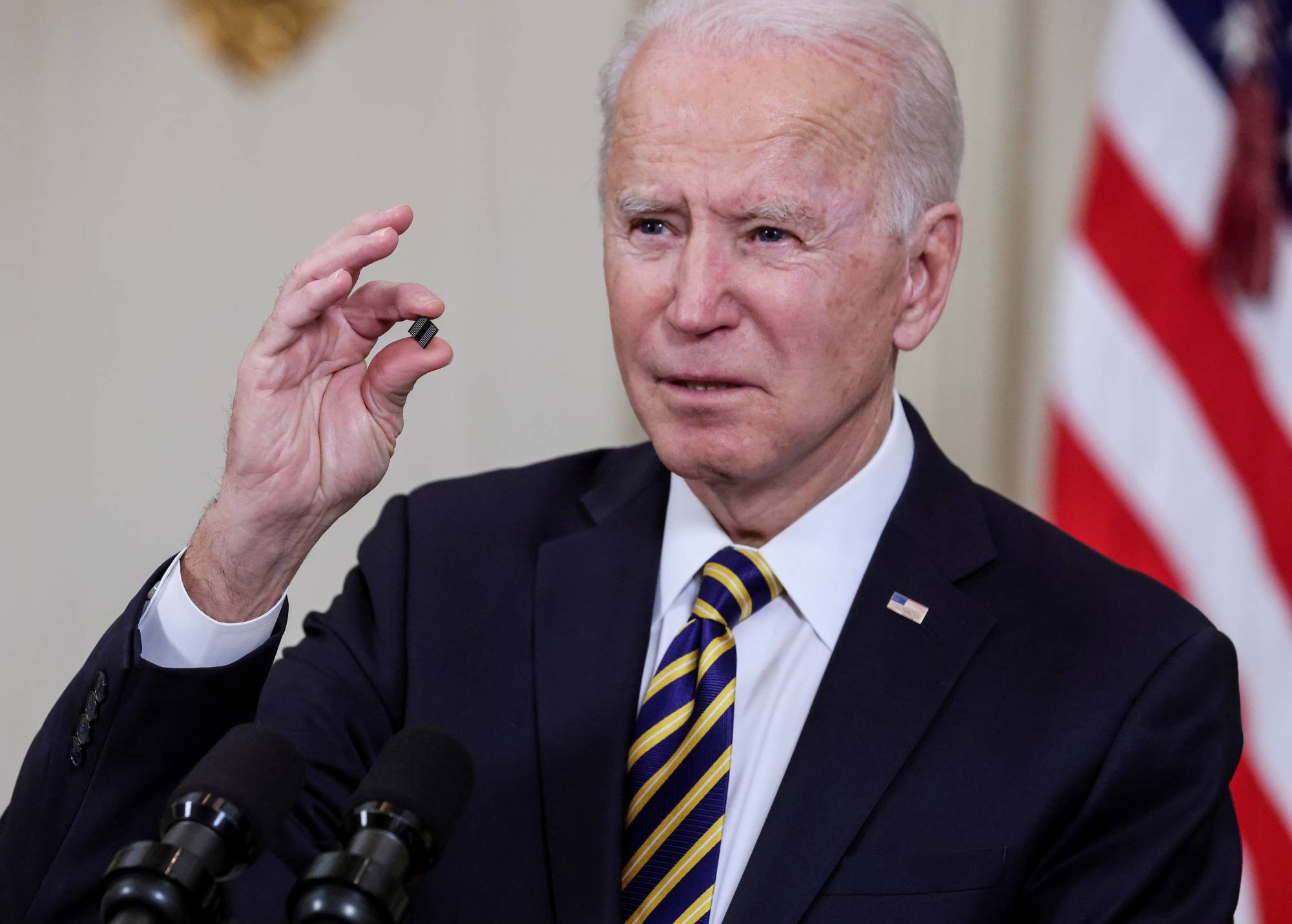When U.S. President Joe Biden on Wednesday stood at a lectern holding a microchip and pledged to support $37 billion in federal subsidies for American semiconductor manufacturing, it marked a political breakthrough that happened much more quickly than industry insiders had expected.
For years, chip industry executives and U.S. government officials have been concerned about the slow drift of costly chip factories to Taiwan and Korea. While major American companies such as Qualcomm Inc. and Nvidia Corp. dominate their fields, they depend on factories abroad to build the chips they design.
As tensions with China heated up last year, U.S. lawmakers authorized manufacturing subsidies as part of an annual military spending bill due to concerns that depending on foreign factories for advanced chips posed national security risks. Yet funding for the subsidies was not guaranteed.


















With your current subscription plan you can comment on stories. However, before writing your first comment, please create a display name in the Profile section of your subscriber account page.